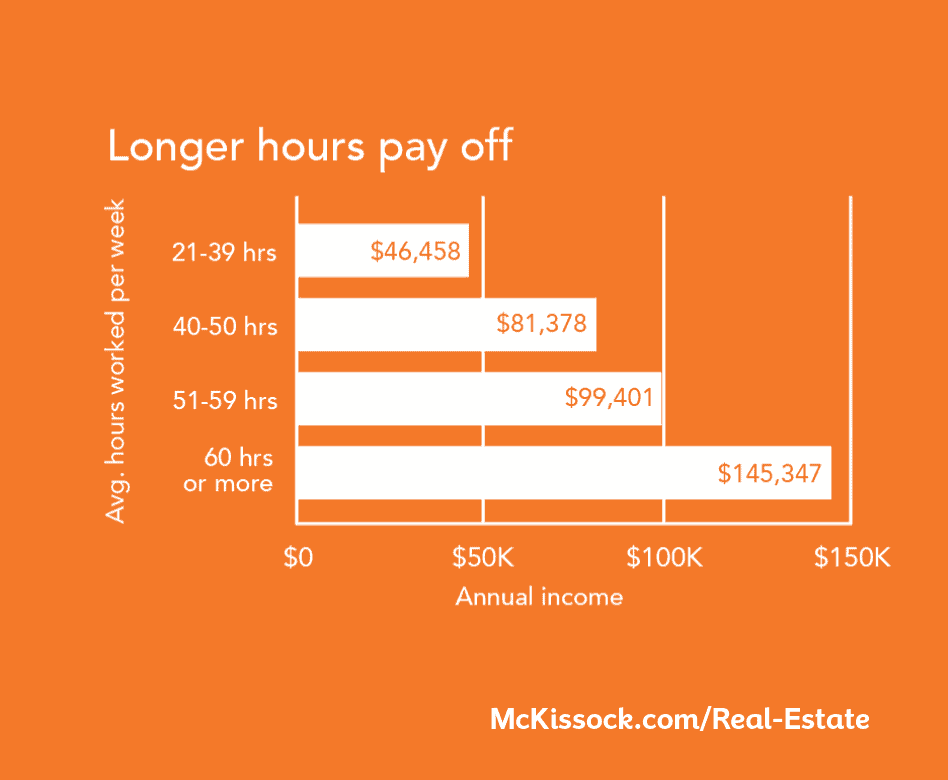Becoming a Real Estate Agent: Requirements, Timing, and Part-Time Opportunities

Introduction: Real Estate-A Flexible Career for Many
Real estate offers a dynamic career path with the flexibility to work full-time or part-time. Whether you’re looking to supplement your income, transition to a new industry, or explore real estate without giving up your current job, understanding the essential requirements and process is key. This guide covers the feasibility of part-time work, the current market outlook, educational needs, licensing process, and age requirements, with actionable steps and practical advice.
Can You Work as a Real Estate Agent Part-Time?
Yes, becoming a part-time real estate agent is both possible and common . Many individuals pursue real estate as a side career-whether to earn extra income, gain investment knowledge, or build a new professional network. Part-time arrangements are popular among students, retirees, parents, and those testing the waters before going full-time. However, success as a part-time agent requires careful planning and the right support system.
To get started, you must meet your state’s licensing requirements, which include completing pre-licensing education, passing a licensing exam, and affiliating with a real estate brokerage. Brokerages vary in their willingness to onboard part-time agents, so it’s important to be transparent about your intentions. Some brokerages are supportive, while others may prefer full-time agents. Consistent communication, leveraging technology, and building a strong network can help part-timers thrive despite limited availability [1] , [2] , [4] .
Key challenges
for part-time agents include responding quickly to client inquiries and balancing work with other commitments. Many successful part-timers join teams or partnerships to ensure clients receive prompt service when they’re unavailable
[3]
.
Is Now a Good Time to Become a Real Estate Agent?
The real estate industry is cyclical and often influenced by interest rates, housing supply, and local demand. Entering the field in 2025 comes with both opportunities and uncertainties. Post-pandemic markets have rebounded in many areas, and buyer demand remains high in several regions, but agents also face increased competition and evolving regulations.
Key factors to consider:
- Market conditions: Research your local market for current trends in home sales, inventory, and buyer activity. In some cities, tight inventory and strong demand can lead to more opportunities.
- Technology and remote work: Virtual showings and digital transactions have become more widespread, which can benefit part-time agents who need flexibility.
- Economic shifts: Changes in mortgage rates or economic policy may affect transaction volume and agent income.
While the market has its ups and downs, real estate remains an accessible career path for those who are proactive, adaptable, and willing to invest in professional development. If you plan to start part-time, ensure you have a realistic view of commission-based income and the time required to build a client base [5] .

Source: kylehandy.com
Do You Need to Go to College to Be a Real Estate Agent?
No, a college degree is not required to become a real estate agent in the United States . The standard requirements are:
- You must be at least 18 years old (some states require 19).
- You need a high school diploma or equivalent (GED) in most states.
- You must complete the state-mandated pre-licensing courses.
Some agents with college backgrounds may find their degrees helpful, especially in business, finance, or marketing, but it’s not a prerequisite. This makes real estate an appealing option for those seeking a new career without investing years in higher education [2] , [5] .
Is Getting a Real Estate License Hard?
The process of getting a real estate license is structured but achievable for most people . The difficulty level depends on your background, study habits, and the time you dedicate to preparation. Here are the main steps:

Source: kylehandy.com
- Pre-licensing education: Complete the required coursework (which varies by state, from 40 to 180 hours).
- Exam preparation: Study for the state licensing exam; many schools offer prep materials and practice tests.
- Passing the exam: The exam covers real estate principles, contracts, practices, and state-specific laws. The pass rate varies but is typically between 50% and 65% on the first attempt, depending on the state and preparation.
- Background check: Submit to fingerprinting and a background check, as required by most states.
While some find the exam challenging, especially if they are new to real estate concepts, most candidates pass with dedicated study and the right resources. Online or in-person classes, exam prep books, and practice exams are widely available to help you succeed [2] , [3] .
How Long Does It Take to Finish Real Estate School?
The timeline to complete real estate pre-licensing education varies by state and your schedule . Most programs require between 40 and 180 hours of coursework. Some states, like Ohio, require 100 hours, while others, like California, require 135 hours. Many schools now offer self-paced online courses, enabling you to finish in as little as a few weeks if you study full time, or over several months if you prefer a slower pace.
After completing the coursework, you must pass the state licensing exam. The entire process-from starting classes to becoming licensed-can take anywhere from six weeks to six months, depending on the course format, your study habits, and test scheduling [3] , [5] .
To enroll in a state-approved real estate school, search for accredited providers in your state. Many schools have robust online offerings, live classes, and exam prep packages. Check school reviews and ensure they meet your state’s regulatory requirements.
What Age Can You Get Your Real Estate License?
The minimum age to obtain a real estate license is typically 18 years old , though some states require you to be 19. You must also have a high school diploma or equivalent in most cases. If you meet these basic criteria, you can begin pre-licensing education and start your career as soon as you are ready [2] , [5] .
For those considering real estate straight out of high school, this can be an accessible pathway into a professional field without a college degree.
Step-by-Step: How to Become a Real Estate Agent (Full-Time or Part-Time)
-
Check your state’s requirements:
Visit your state’s Department of Real Estate or Real Estate Commission website for the latest requirements and approved schools. Search online using terms like ”
[Your State] real estate licensing requirements
.” - Complete pre-licensing education: Enroll with an accredited real estate school (in person or online) and finish the required coursework.
- Pass the licensing exam: Register for and pass your state’s real estate exam. Many schools offer exam prep resources to help you prepare.
- Complete background check: Submit your fingerprints and undergo a background check as required by your state.
- Apply for your license: Submit your application and supporting documents to your state’s licensing agency.
- Find a sponsoring broker: Research brokerages, schedule interviews, and discuss your intention to work part-time or full-time. Choose a brokerage that supports your goals and offers training, mentorship, and resources.
- Join the local MLS and associations: Many agents join the Multiple Listing Service and local, state, or national Realtor associations for access to listings, resources, and networking.
- Start your real estate career: Attend brokerage training, build your network, and begin connecting with potential clients. For part-timers, consider joining a team or partnership to ensure client needs are always met.
Accessing Resources and Opportunities
To find approved real estate schools or licensing agencies, you can:
-
Search for ”
[Your State] real estate commission
” or ”
[Your State] department of real estate
” in your preferred search engine to locate official state websites. - Contact local real estate brokerages for recommendations on schools and licensing procedures.
- Read reviews of online real estate schools and compare course offerings, pricing, and pass rates.
- Consult local real estate associations for guidance on joining the profession and networking.
For ongoing support, many brokerages and industry groups offer mentorship, continuing education, and networking events. These resources can help new agents-especially part-timers-grow their careers more quickly.
Challenges and Alternative Paths
While real estate offers flexibility, part-time agents may face challenges such as limited availability for showings, slower client response, and difficulty building a steady income. To address these, consider:
- Partnering with another agent: This ensures someone is always available for your clients.
- Leveraging technology: Use scheduling apps, virtual tours, and digital signatures to streamline processes.
- Setting clear expectations: Be upfront with clients about your availability and response times.
Alternative roles in real estate, such as referral agents or transaction coordinators, can also offer flexibility for those unable to commit to the full demands of brokerage work.
Key Takeaways
- You can become a real estate agent part-time in every state, provided you meet the licensing requirements.
- No college degree is necessary-just pre-licensing education and a state exam.
- With the right preparation, most people can pass the licensing exam and launch their career within a few months.
- The minimum age is usually 18, and opportunities exist for part-time, full-time, and referral agents.
- Success depends on finding the right brokerage, leveraging technology, and building a strong network.
References
- [1] US Realty Training (2024). Becoming a Part Time Real Estate Agent in California: Ultimate Guide.
- [2] RentSpree (2025). Essential guide to becoming a part-time real estate agent.
- [3] Hondros College (2024). Become a Part-time Real Estate Agent in Ohio.
- [4] The Close (2024). Can You Be a Part-time Real Estate Agent? What You Need to Know.
- [5] Rockwell Institute (2024). Can You Work in Real Estate Part-Time?






